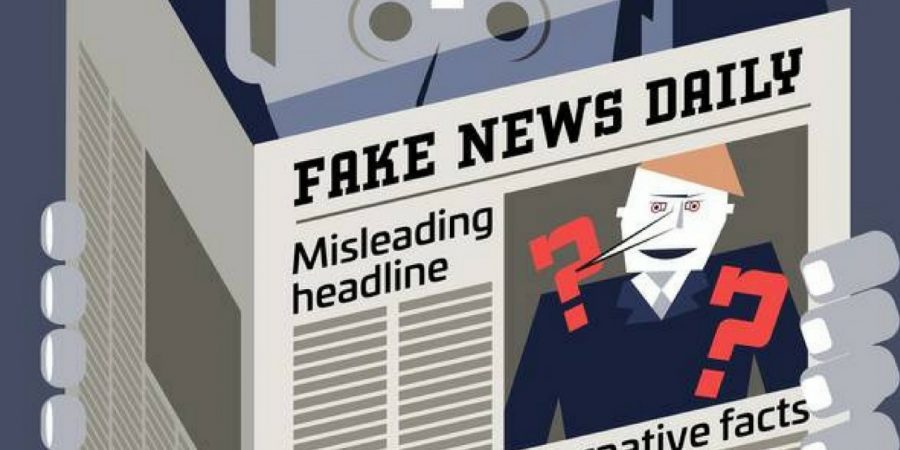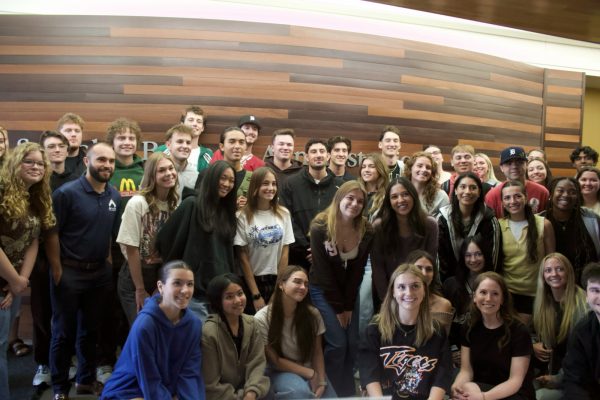The ever changing relationship between media and politicians
After Donald Trump was elected president in 2016, the term “fake news” hit the mainstream lexicon more than ever before.
Trump repeatedly criticized journalists and publications, which published information that was critical of him. In its evolution, media also began sensationalizing and playing up dramatic aspects of news.
In 2019, media trust was at 41%, with only 15% of Republicans and 31% of independents trusting the media. Due to the rhetoric surrounding journalism, the trust of media has taken a hit over the past four years.
“I think the political climate is more divisive and less trusting when compare to 2008 and before,” political science professor John Klemanski, Ph. D., said. “Political polarization emerged at least by the 1990s, but it has become more intense and has involved more average citizens than before.”
Klemanski said today’s era is a “post-truth” one. The country has been more divided, with media becoming as partisan as party identities.
“The Press is seen as the ‘enemy of the people’ as President Trump famously said,” Klemanski said. “There are plenty of — typically conservative, typically Republican — politicians who won’t even talk to mainstream media. They grant interviews only to conservative news outlets who are already friendly to their political views.”
This development in society and media has led to a new job market for future politicians and future media professionals.
Chiaoning Su, a professor in the journalism, communication and public relations department, has noticed the shift in media since 2016. In particular, she noticed the rise in political media and the increased need for unbiased political journalists.
“I think students need to learn to put their opinion aside when covering political events so that they are not practicing confirmation bias,” Su said. “The thing about millennials and Gen-Z is that they are so passionate about politics, so it’s very important to be able to distinguish opinion from fact.”
For both Su and Klemanski, preparing students for the real world of covering politics requires honesty.
“I just am very honest with [students],” Su said. “I say, ‘look, if you want to do journalism, the most important thing is for you to be able to distinguish opinion from fact.’”
Klemanski and Su both believed in the increased need for good political reporting, but in today’s media market, getting a solid, full-time job covering politics can be a tough career to enter.
“News organizations have let lots of reporters go, and rely on fewer reporters on staff, or deal with freelance reporters,” Klemanski said. “I don’t discourage students from going into journalism, but it is a challenge for even the most talented students to find and keep a decent full-time job as a reporter.”
Despite the tension between media and politicians, the public still needs quality journalism surrounding politics. Having a good relationship with the media can make or break a politician’s career.
Despite his negative rhetoric surrounding media, Klemanski believes Trump has mastered the art of dealing with media.
“For all of his complaining about the media, Donald Trump has skillfully played much of the media to his advantage,” Klemanski said. “It’s no longer a disadvantage for a news outlet to be critical of a politician, because that politician can simply argue that the news source is biased or it’s ‘fake news.’”
Good, unbiased journalism can help the average citizen stay informed and know the truth in a muddled media storm.
“Political reporters are greatly needed right now because it’s what people want to know,” Su said.
The media trust levels ebb and flow, but one thing remains — people need quality journalists to disseminate information and inform the public.






